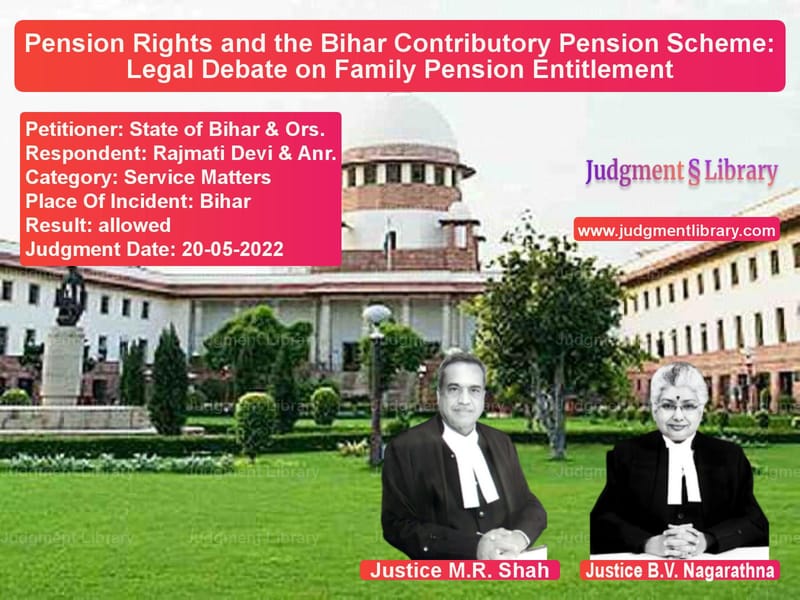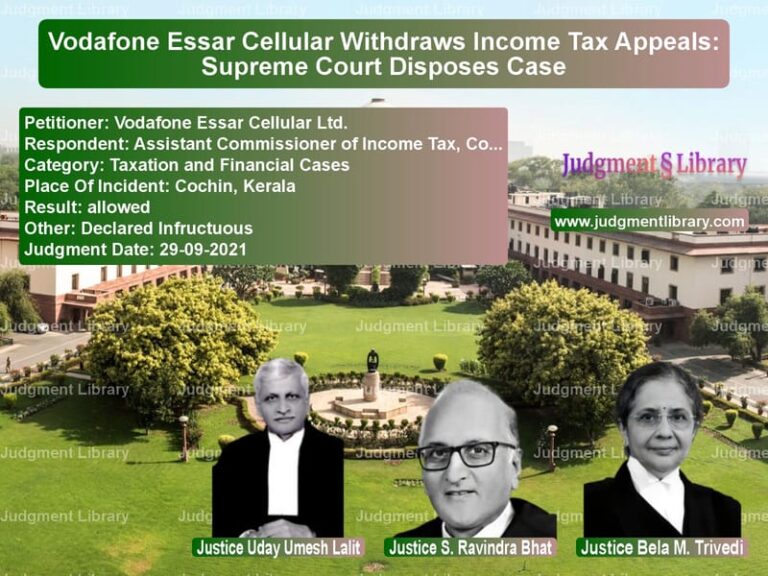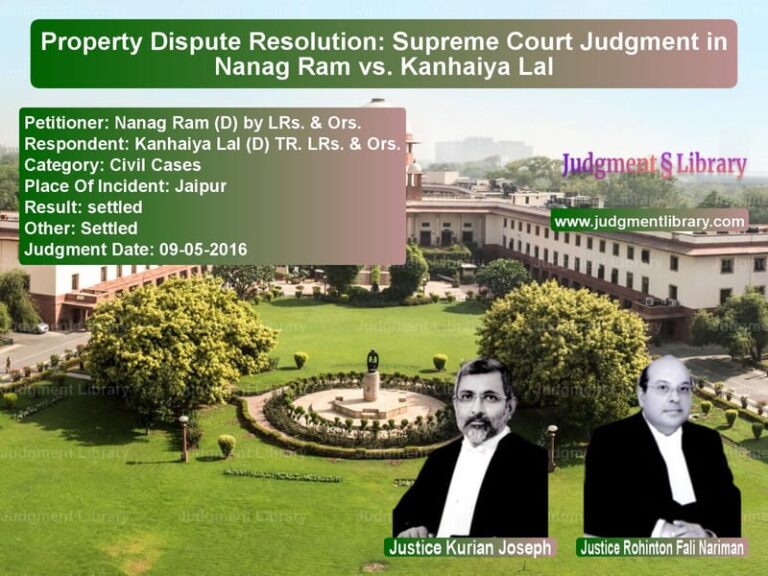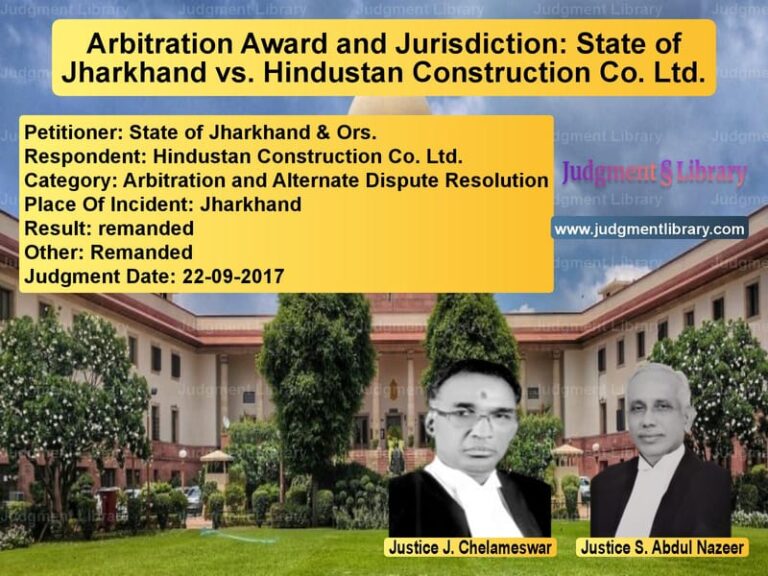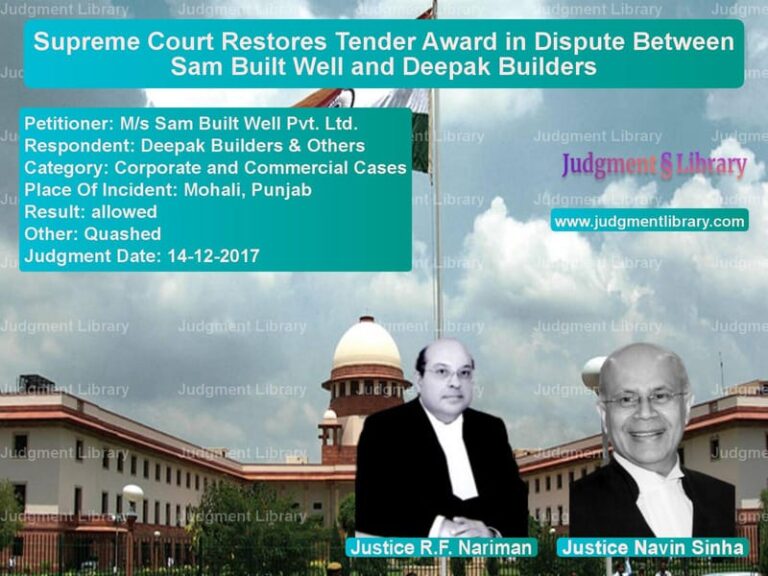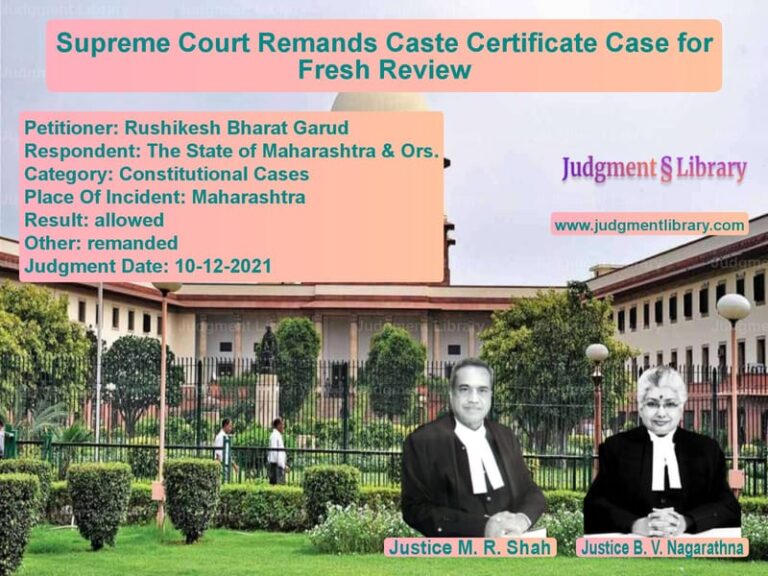Pension Rights and the Bihar Contributory Pension Scheme: Legal Debate on Family Pension Entitlement
This case revolves around a legal dispute concerning the entitlement of a widow to family pension under the Old Pension Rules after her husband’s death. The appellant, the State of Bihar, contested the judgment passed by the High Court of Patna, which had directed the State to pay family pension to the widow of an employee under the Old Pension Rules. The issue arose after the husband of the respondent was absorbed into government service under the Bihar Government Servant Contributory Pension Scheme, 2005, and the appellant contended that the new pension scheme precluded entitlement to family pension under the old rules.
Petitioner’s Arguments
The State of Bihar, represented by its counsel, Mr. Abhay Anil Anturkar, argued that the family pension scheme under the Old Pension Rules applied only to employees governed by those rules before the introduction of the new pension scheme. The State highlighted that the husband of the respondent, who was employed by the Bihar Research Society and subsequently absorbed into government service in 2014, was governed by the New Contributory Pension Scheme, which does not provide for family pensions. The petitioner contended that the Old Pension Rules, which had been abolished in 2005 and replaced by the new scheme, did not apply to the deceased employee, and hence, the widow was not entitled to the family pension under those rules.
The appellant also argued that the corrigendum issued by the State in 2015 clarified that the services rendered by the deceased employee before his absorption into government service could not be counted as government service. Therefore, the appellant claimed that the respondent, being the widow of an employee absorbed under the new pension scheme, was not entitled to benefits under the Old Pension Rules.
Respondent’s Arguments
On the other hand, the respondent, represented by Ms. Rachitta Rai, vehemently opposed the State’s arguments. She contended that the husband of the respondent had been absorbed into government service as per the Bihar Research Society (Taking Over) Act, 2007, and that his services were to be treated as continuous. The respondent argued that the employee’s absorption was not a fresh appointment but a continuation of his service, and therefore, the family pension entitlement should be governed by the Old Pension Rules, under which her husband had been employed before his absorption into government service.
The respondent further contended that since the husband of the respondent had died in harness while in service, the family pension should be granted to the widow in accordance with the family pension scheme. The respondent relied on the principle that the family pension scheme is a beneficial scheme, and thus, she should be entitled to the pension, regardless of the applicability of the Old Pension Rules.
Court’s Analysis and Conclusion
The Supreme Court considered the submissions from both parties and examined the legal implications of the case. The Court noted that the husband of the respondent was absorbed into government service in 2014, and the New Contributory Pension Scheme was applicable to him, replacing the Old Pension Rules. The Court also reviewed the corrigendum issued by the State of Bihar, which clarified that the services rendered by the employee before his absorption would not be counted as government service.
The Court emphasized that the New Contributory Pension Scheme was a comprehensive pension scheme that applied to all employees appointed or absorbed into government service after the cut-off date of 01.09.2005. Since the husband of the respondent was absorbed into government service in 2014, the Court concluded that he was governed by the new pension scheme, which does not provide for family pensions.
The Court further held that while the family pension scheme is indeed a beneficial scheme, the applicability of the Old Pension Rules was precluded by the introduction of the New Contributory Pension Scheme. The Court found that the High Court had erred in directing the appellant to grant family pension under the Old Pension Rules, as the applicable pension scheme was the new contributory pension scheme under which the widow was not entitled to the family pension.
Final Decision
The Supreme Court ruled in favor of the State of Bihar, allowing the appeals and setting aside the High Court’s decision. The Court held that the widow of the deceased employee was not entitled to the family pension under the Old Pension Rules, as the employee had been absorbed under the new pension scheme, which does not provide for family pensions. The judgment of the High Court was quashed, and the appeals were allowed accordingly. No costs were awarded in the case.
Petitioner Name: State of Bihar & Ors..Respondent Name: Rajmati Devi & Anr..Judgment By: Justice M.R. Shah, Justice B.V. Nagarathna.Place Of Incident: Bihar.Judgment Date: 20-05-2022.
Don’t miss out on the full details! Download the complete judgment in PDF format below and gain valuable insights instantly!
Download Judgment: state-of-bihar-&-ors-vs-rajmati-devi-&-anr.-supreme-court-of-india-judgment-dated-20-05-2022.pdf
Directly Download Judgment: Directly download this Judgment
See all petitions in Employment Disputes
See all petitions in Public Sector Employees
See all petitions in Pension and Gratuity
See all petitions in Judgment by Mukeshkumar Rasikbhai Shah
See all petitions in Judgment by B.V. Nagarathna
See all petitions in allowed
See all petitions in supreme court of India judgments May 2022
See all petitions in 2022 judgments
See all posts in Service Matters Category
See all allowed petitions in Service Matters Category
See all Dismissed petitions in Service Matters Category
See all partially allowed petitions in Service Matters Category

